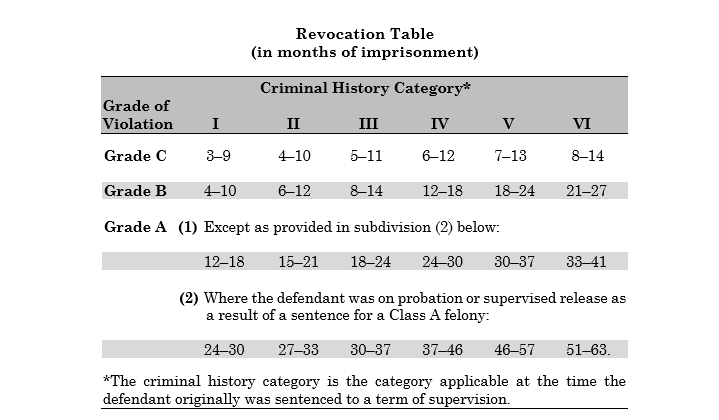This past week seemed like revocation week. I ended up with federal revocations of supervised release in three different courts. District of New Mexico, Western District of Texas- El Paso Division, and Western District of Texas- Austin Division. All three had the same problem- client was arrested for a new offense and did not tell the probation officer either that he had been arrested or in one case that he was arrested for something more than traffic tickets. These are either violations of standard conditions or special conditions. Either way you have issues if you don’t tell your probation officer, because you have 72 hours to tell them about the new arrest (10 days usually in Texas State Court) but they have no limit to when they can learn that you were arrested and then file to revoke your supervised release.
Almost all federal cases have supervised release. Sticking to drug cases- you will receive either three (3) or five (5) years depending on the class of the offense. Most people do not realize that you can terminate that early, usually at 1/2 of the time, sometimes sooner if you ask.
However, as has been said, it can also be “the gift that keeps on giving”, because at least on federal district court judge has said, “I have you for life…” While that sounds horrible, that can be correct. Once you’re placed on supervised release, you can complete the full term successfully, terminate it early, or have a petition to revoke filed. That petition unfortunately can be resolved with you being sent to prison for some amount of time, and then terminated (hopefully) or placed back on supervised release for an additional term. Most courts won’t terminate you the first violation and usually won’t place you back on supervised release after some number of violations but that doesn’t mean that it can’t happen.
Much like the original sentence, there is a table for revocations of supervised release. This is found in United States Sentencing Guidelines Chapter 7-

This table has a twist- if you’re on supervised release for a Class A felony (think over 1000 kilos of marijuana, 5 kilos of cocaine, 500 grams of actual methamphetamine) and you’re charged with any Class A felony- Aggravated Assault, notice how the guidelines essentially double.
Failure to report/ or failure to truthfully tell your probation officer regarding an arrest is a class C violation. You then use the criminal history you had “at the time of sentencing,” not including any new convictions or unfortunately dropping any old convictions. This is one of the reasons to negotiate a supervised release violation early, some prosecutors will drop the new offense if asked, and one (Austin) will try all they can do to not drop it. However the new guidelines can go from 51-63 to as low as 8-14. How do you get lower- ask for acceptance. I’m shocked when Judges who live with the guidelines have never been asked for acceptance on a revocation. We do uncontested revocations all the time, we should get the benefit of “acceptance of responsibility” in a revocation just like a new sentence- don’t you think? I do…..
Tagged with: Federal, revocation, supervised release
Posted in: Uncategorized